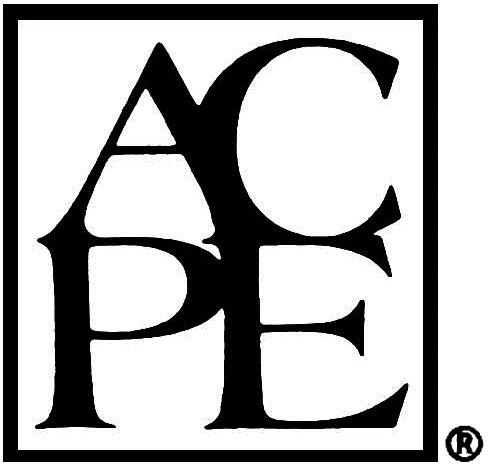Recorded Presentation from the NCCN 2017 Congress Webinar Series: Breast Cancer - Late Stage Breast Cancer, Including SABCS Updates
Breast cancer is the most common malignancy in women in the United States and is second only to lung cancer as a cause of cancer death. The treatment of breast cancer is rapidly evolving. Results from numerous clinical trials continue to expand new therapeutic options, treatment and risk reduction strategies, and diagnostic/prognostic tools. Healthcare professionals need to be educated on current and emerging scientific data to make evidence-based treatment decisions and to provide optimal care for patients with breast cancer.
As the complexity and importance of screening, testing, and individualized treatment strategies for breast cancer have increased, so has clinicians’ reliance on the NCCN Clinical Practice Guidelines in Oncology® (NCCN Guidelines®) for Breast Cancer and NCCN’s educational interventions to increase knowledge and bridge the gaps between knowledge and competence.
This webinar series will provide an in-depth analysis of the evidence and clinical decision-making that led to the development of the NCCN Guidelines® for Breast Cancer, to ensure that oncology healthcare professionals have a clear understanding of the current standard of care for patients with breast cancer and to assist them with formulating breast cancer management strategies.
Target Audience
This educational program is designed to meet the educational needs of oncologists, nurses, pharmacists, and other health care professionals who manage patients with breast cancer.
Learning Objectives
Following this activity, participants should be able to:
- Select evidence-based treatment options for patients with advanced hormone-sensitive breast cancer.
- Compare the risks and benefits of the newer options available for the treatment of patients with HER2-positive disease to limit toxicities and optimize outcomes.
William J. Gradishar, MD
Robert H. Lurie Comprehensive Cancer Center of Northwestern University
Disclosure of Relevant Financial Relationships
All faculty and activity planners participating in NCCN continuing education activities are expected to disclose any relevant financial relationships with a commercial interest as defined by the ACCME’s, ANCC’s, and ACPE’s Standards for Commercial Support. All faculty presentations have been reviewed for adherence to the ACCME’s Criterion 7: The provider develops activities/educational interventions independent of commercial interests (SCS 1, 2, and 6) by experts on the topics. Full disclosure of faculty relationships will be made prior to the activity.
The faculty listed below disclose no relevant financial relationships:
William J. Gradishar, MD
The NCCN Activity Planning staff listed below discloses no relevant financial relationships:
Mark Geisler; Kristina M. Gregory, RN, MSN, OCN; Kristin Kline Hasson; Rose Joyce; Karen Kanefield; Joan S. McClure, MS; Diane McPherson; Melanie Moletzsky; Deborah Moonan, RN, BSN (employed by NCCN until 2/7/17); Lisa Perfidio; Liz Rieder; Shannon K. Ryan; Kathy Smith; Jennifer McCann Weckesser (employed by NCCN until 2/3/17)
The NCCN Clinical Information staff listed below, who has reviewed content, discloses no relevant financial relationships:
Mary Anne Bergman; Ellen Erkess Uskuraitis; Mary Dwyer, MS; Alyse Johnson-Chilla; Rashmi Kumar, PhD; Dorothy Shead, MS
The ACCME/ANCC/ACPE defines “conflict of interest” as when an individual has an opportunity to affect CE content about products or services of a commercial interest with which he/she has a financial relationship.
ACCME, ACPE, and ANCC focuses on financial relationships with commercial interests in the 12-month period preceding the time that the individual is being asked to assume a role controlling content of the CE activity. ACCME, ACPE, and ANCC have not set a minimal dollar amount for relationships to be significant. Inherent in any amount is the incentive to maintain or increase the value of the relationship. The ACCME, ACPE, and ANCC defines “relevant’ financial relationships” as financial relationships in any amount occurring within the past 12 months that create a conflict of interest.
All faculty for this continuing education activity are competent in the subject matter and qualified by experience, training, and/or preparation to the tasks and methods of delivery.
Faculty presentations may include discussion of off-label use. Faculty will disclose that the use in question is not currently approved by the FDA per the product labeling.
Physicians
National Comprehensive Cancer Network is accredited by the Accreditation Council for Continuing Medical Education (ACCME) to provide continuing medical education for physicians.
National Comprehensive Cancer Network designates this enduring material for a maximum of 0.75 AMA PRA Category 1 Credit™. Physicians should claim only the credit commensurate with the extent of their participation in the activity.
Physician Assistants
AAPA accepts certificates of participation for educational activities certified for AMA PRA Category 1 Credit™ from organizations accredited by ACCME or a recognized state medical society. PAs may receive a maximum of 0.75 hour of Category I credit for completing this activity.
Nurses
National Comprehensive Cancer Network is accredited as a provider of continuing nursing education by the American Nurses Credentialing Center’s Commission on Accreditation.
NCCN designates this educational activity for a maximum of 0.80 contact hour.
Pharmacists
| National Comprehensive Cancer Network is accredited by the Accreditation Council for Pharmacy Education as a provider of continuing pharmacy education. |
NCCN designates this knowledge-based continuing education activity for 0.75 contact hour (0.075 CEUs) of continuing education credit. UAN: 0836-0000-17-061-H01-P
Available Credit
- 0.75 ACPE contact hours
- 0.75 AMA PRA Category 1 Credit™
- 0.80 ANCC contact hours
- 0.75 Participation
Required Hardware/software
To complete this activity, users will need:
- A device with an Internet connection
- One of the two latest versions of Google Chrome, Mozilla Firefox, or Safari (Internet Explorer is no longer supported)
- Adobe Flash Player and/or an HTML5 capable browser for video or audio playback
- Adobe Reader or other PDF reader software for certificate viewing/printing

 Facebook
Facebook X
X LinkedIn
LinkedIn Forward
Forward